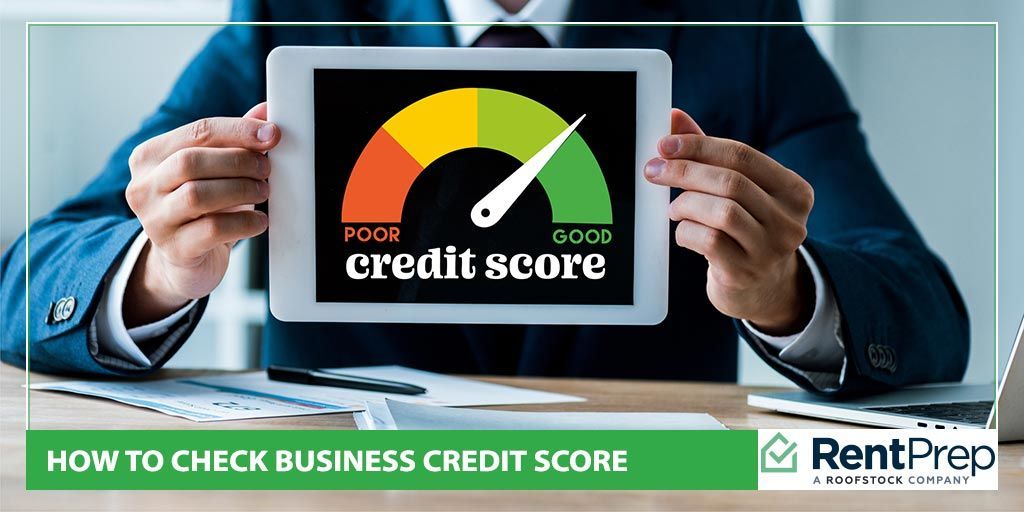
Did you know that more than one credit score is currently affecting the types of financial assistance and business opportunities you can access?
In addition to your personal credit, it’s also essential to know how to check the business credit score of your business. Your business’s creditworthiness must be established to ensure you can get business loans, lines of credit, and supplier support. Without a strong business credit score, growing your business gets more complicated.
What does it take to determine your business credit score, and what can you do to improve it if you don’t like what you see? Learn all about business credit scores and reporting in today’s complete guide.
A Table Of Contents On Checking Your Business Credit Score
Do you know how to determine your business’s credit score? This information is publicly available, but not all small business owners know this or the score’s implications. Learn all you need to know today:
- What Is A Business Credit Score?
- Why Your Business Credit Score Matters
- What Affects Your Business Credit Score
- How To Check Your Business Credit Score
- Improving Your Business Credit Score
- FAQs: How To Check Your Business Credit Score
- Conclusion
What Is A Business Credit Score?

A business credit score evaluates basic information about a business to analyze its credit risk factors. Business credit scores are typically based on information like payment history, amounts owed, existing credit lines, credit utilization, historical business data, and other account information.
Banks, lenders, and creditors quickly check business creditworthiness with business credit scores. The scores help determine whether or not to issue loans and other lines of credit to the business in question.
Most business credit reporting agencies give scores that range from 0 to 100. Lower scores represent a high risk, while higher numbers indicate stability. FICO’s Small Business Scoring Service is an exception; credit scores through this model range from 0 to 300.
Personal vs. Business Credit Scores
Are business credit scores the same as personal credit scores?
No. While there are similarities between the two, there are also major differences. Business credit scores fall in a much smaller range than personal credit scores. Personal scores range from 350 to 800, while most business credit scores fall within a scale of 0 to 100.
Another big difference is accessibility. Personal credit scores can only be checked under certain conditions while anyone can pay to check a business credit score at any time without regard to any specific rules.
Finally, business credit scores are linked to a business’s Employer Identification Number (EIN). Personal credit scores are tied to an individual’s Social Security Number. Only businesses that are legally registered are issued an EIN. It’s essential to do this to separate your personal credit (and your privacy) from your company.
Why Your Business Credit Score Matters
Why is it important to monitor and improve your business credit score?
The main reason is that you need access to financing and partnership opportunities. A good business credit score will help you get better loan rates, lines of credit, and deals with discerning business partners. Without a good score, your small business can be denied the financing that you need to keep growing.
Business credit scores affect many aspects of financing opportunities including:
- Interest rates
- Terms on business loans
- Rates offered by insurance providers
- Rates provided by commercial landlords
- Loan or credit approval
- Amount of credit
- Supplier payment terms
With a more robust business credit score, you will find moving forward in many parts of your business easier. Taking time to check and improve your credit score is vital for the long-term success of your business.
What Affects Your Business Credit Score
Each credit reporting agency uses a different scoring model to determine your business credit score. However, there are major similarities between each model. The key factors that affect your business’s score include the following:
- Payment history to vendors
- Payment history on loans and credit cards
- Company’s age
- Company’s size
- Financial account history
- Credit utilization percentage
- Trade lines
- Failure risk in your industry
How To Check Your Business Credit Score
When checking your personal credit score, you consult specific credit reporting agencies. The same idea applies when checking your business credit score.
Three companies generate and monitor credit scores:
- Equifax
- Experian
- Dun & Bradstreet
Each company has unique calculations and differing requirements for checking your business credit score. The score issued by each company varies, as does the information provided in their credit reports.
Dun & Bradstreet
The largest business credit reporting bureau today is Dun & Bradstreet. To be part of their system, your business must register for a D-U-N-S number with the company. This establishes your business within their system and generates a business credit score.
The credit scores generated by Dun & Bradstreet are known as PAYDEX scores. The primary factors affecting PAYDEX scores are trade records. Dun & Bradstreet obtains these records from registered vendors and suppliers. PAYDEX scores range from 0 to 100, with the 80-100 range representing the lowest risk.
To see your business credit score with Dun & Bradstreet, you must pay to access your scores and data. Alternatively, you can sign up for free updates on any changes to your file. This program is known as Dun & Bradstreet Credit Signal.
Equifax
Equifax has the most straightforward access method. You must pay a one-time fee to view your business credit score. Equifax credit reports assess businesses for credit risk, payments, and business failure risk.
Experian
Experian also allows businesses to pay a one-time access fee to check their business credit score. You have the option to sign up for monthly or annual subscriptions so that you can track your score regularly.
Experian’s Intelliscore Plus reports give credit scores that range from 1 to 100. Businesses in the 76 to 100 range show the lowest risk in Experian’s model. Reports issued by Experian give a business credit score and a separate rating for financial stability.
How To Check Your Business Credit Score For Free

Checking your business credit score for free is difficult. Dun & Bradstreet offers a free trial that allows limited access to their business credit score reporting. Experian requires payment to access their credit reports.
Equifax may issue a free credit report if you apply for business credit, but you must work directly with an Equifax agent to get this service.
If you’re just getting started with monitoring your business credit score, the best option is to pay a one-time fee to get an idea of where you stand. Once you prioritize improving your score and watching it long term, consider upgrading to a monthly or annual monitoring subscription.
Improving Your Business Credit Score
Your business credit score showcases your business’s reliability. Get the best opportunities by taking the time to improve your business credit. Just as there are certain things that individuals can do to raise their personal credit score, these are some actions to take to improve your business credit score.
#1: Pay Things On Time (Or Early!)
Payment history plays a huge role in business credit scores. Ensure all bills are paid on time or even pay them early. Paying expenses early makes it harder to miss a payment by mistake.
#2: Use Your Credit
Simply having access to business credit lines, such as a business credit card, is not enough to improve your credit score. Utilize your business credit. Use what you can, and make the payments on time. Working to borrow and pay back money helps build credit.
Of course, it’s also important not to max out your credit. Use what you can reasonably pay back, and make sure not to utilize more than 30% of the credit lines available to your business.
#3: Get A Business Credit Card
Some types of business credit reports take lines of credit into account when determining your business credit score. For many, establishing a line of credit for their business starts by applying for a business credit card.
#4: Make Sure You’re In The System
If you haven’t already, ensure you are registered with business credit bureaus where necessary. Not all bureaus start issuing business credit automatically; some require registration. Once you’re in the system, your business credit score will be tracked and recorded.
#5 Keep Growing Your Business With RentPrep
Another way to improve your business credit score is to improve your business! As you grow your financial footprint and stability, the fluctuations of credit and borrowing will have less overall impact on your business. Think long term and ensure a solid foundation as you grow your business.
At RentPrep, we aim to offer landlords more than our high-quality screening services. We also want to provide regular, accurate information about the rental industry. To stay updated with the latest, sign up for our newsletter and gain access to all of RentPrep’s landlord resources.
FAQs: How To Check Your Business Credit Score
Deepen your understanding of business credit scores and how they affect your business opportunities with answers to these frequently asked questions.
Does my LLC have a credit score?
Yes, your LLC should have a business credit score. Large credit reporting services like Dun & Bradstreet collect business information to generate these scores. LLCs are included in their calculations. Any business that you are part of will have its own business credit report if it has a unique EIN.
Why can’t I find my business credit score?
If your business credit score is not showing up on a report, it likely means your business is too new or not registered with the credit reporting agency. Each agency has its own minimum requirements that must be met for a small business credit score to be generated. No score will be available if your company doesn’t have enough information or history on file.
Can you build credit with an EIN?
Once your business registers for an EIN, you can begin building business credit. Applying for business credit cards and loans under your EIN establishes credit and payment history. You can also use your EIN to set up supplier trade accounts. On-time payments on these accounts will help build your business credit.
Does FICO have business credit scores?
Yes, but FICO business credit scores are only available to lenders working directly with FICO to review their borrowers.
The SBSS (Small Business Scoring Service) issues FICO’s small business credit scores. SBSS draws on information from all credit reporting agencies to generate a business credit score. The Small Business Administration (SBA) requires SBSS be used to determine business eligibility for Small Business Association loans.
Do banks use business credit scores?
Banks offering loans to small businesses use business credit scores to determine eligibility. Some banks also provide business credit cards, and the credit score is part of the application process for these cards.
Any lender that needs to rate the creditworthiness of your business is likely to use your business credit score as a factor in their decision-making.
Do business loans go on personal credit?
In most cases, business loans will not appear as part of your personal credit reporting. However, there are some situations where these loans may become part of your personal credit history. Business loans don’t often have a lasting effect on personal credit, but it’s still important to understand how the two are separated.
Your business structure, the loan type, and how the loan is paid off all affect whether or not a business loan ends up on your personal credit report.
Businesses structured as sole proprietorships or partnerships are not separate from those who are running the business. This means that any lines of credit extended to the company are extended to the individual. These loans and credit lines will be part of your personal credit history.
LLCs and corporations are separate legal entities from those who manage the business. Loans taken out under these businesses will not affect personal credit.
Get To Know Your Credit Score
Do you feel confident in your ability to check your business credit score?
Remember, you have three different report agencies to consider:
- Dun & Bradstreet
- Experian
- Equifax
Each company uses its own scoring model, so it’s best to determine how your business will be analyzed when possible. For example, you can monitor your Experian business credit score closely if you know that your potential lender uses this model for their evaluations.
Whether or not you decide that it’s crucial to monitor your business credit score closely, no doubt checking your score from time to time sets your business up for success.

